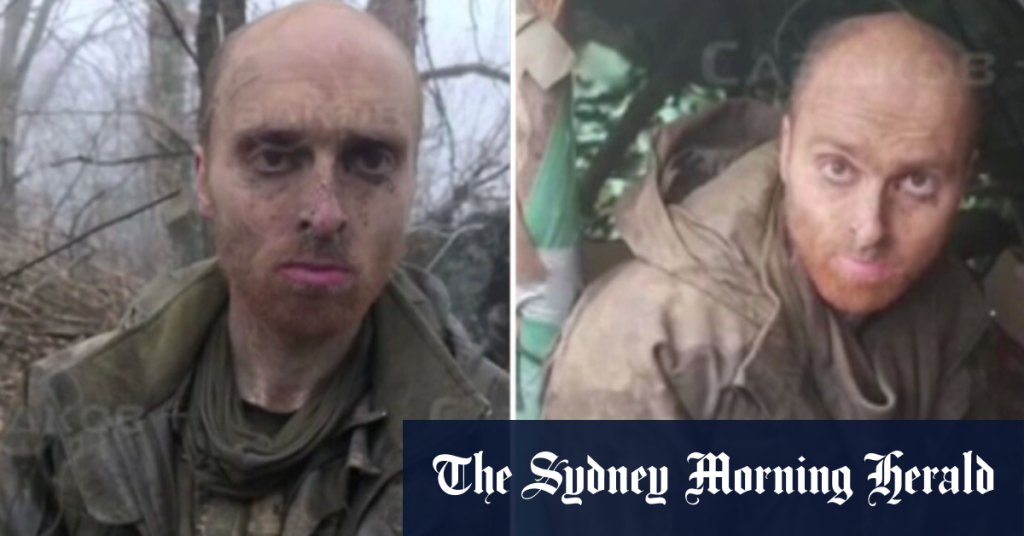A video circulating on pro-Russian Telegram channels appears to depict an Australian soldier captured by Russian forces while fighting for Ukraine’s International Legion. The man in the video identifies himself as an Australian citizen and provides details about his military service and deployment to Ukraine. While the Australian government has yet to officially confirm the individual’s identity or capture, the video has sparked concern and highlighted the risks faced by foreign fighters in the ongoing conflict. This incident underscores the complex and volatile nature of the war, drawing international attention to the involvement of foreign nationals and the potential for escalating tensions between Russia and other countries.
The video itself features the purported Australian soldier sitting against a wall, apparently in captivity. He appears to be reading from a prepared statement, disclosing his name, military background, and the circumstances surrounding his capture. The individual mentions his service with the International Legion, a unit composed of foreign volunteers fighting alongside Ukrainian forces. His statements, if genuine, offer a rare glimpse into the experiences of foreign fighters on the ground and the challenges they face, including the risk of capture and potential mistreatment as prisoners of war. The video’s release on pro-Russian platforms suggests a possible propaganda motive, potentially aiming to demoralize Ukrainian forces and deter further foreign involvement.
The Australian government’s response has been cautious, emphasizing the difficulty in verifying the authenticity of the video and the individual’s claims. Authorities have reiterated their warnings against Australians traveling to Ukraine to participate in the conflict, stressing the dangers involved and the limited consular assistance they can provide in such situations. This incident highlights the complexities of supporting citizens caught in war zones, particularly those engaged in combat operations for foreign armies. The government’s focus remains on encouraging peaceful resolutions and providing humanitarian aid to Ukraine while simultaneously urging its citizens to avoid direct involvement in the conflict.
The capture, if confirmed, raises crucial questions regarding the treatment of prisoners of war and the adherence to international humanitarian law. The Geneva Conventions dictate specific protections for captured combatants, including humane treatment, access to medical care, and communication with their families and consular representatives. The international community will be closely monitoring the situation to ensure that the captured individual, if indeed an Australian citizen, receives the appropriate protections afforded under international law. Human rights organizations and international bodies like the Red Cross will likely play a crucial role in monitoring the situation and advocating for the humane treatment of all prisoners of war.
This incident further underscores the increasing internationalization of the conflict in Ukraine. While the core conflict remains between Russia and Ukraine, the participation of foreign fighters on both sides, including volunteers from various countries and alleged mercenaries, adds another layer of complexity. The presence of foreign fighters raises legal and ethical questions, impacting the dynamics of the conflict and potentially influencing the strategies employed by both sides. It also highlights the global implications of the war and the potential for escalation beyond the immediate region.
The capture of this alleged Australian soldier serves as a stark reminder of the human cost of the war in Ukraine. Beyond the geopolitical implications and strategic calculations, individuals are risking their lives on the frontlines, motivated by various reasons, including a desire to defend Ukraine’s sovereignty or support a perceived just cause. The incident also emphasizes the emotional toll on families and loved ones who face the uncertainty and fear associated with having a relative involved in a foreign conflict. The ongoing war continues to generate humanitarian crises and personal tragedies, highlighting the urgent need for a peaceful resolution.

